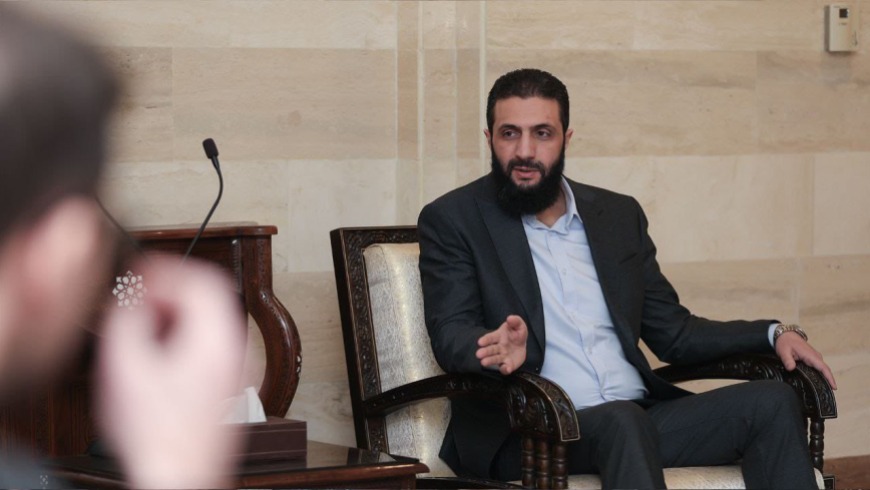Ahmed al-Sharaa, commander of the Department of Military Operations, emphasized that Syria is not akin to Afghanistan, urging the removal of Hay’at Tahrir al-Sham (HTS) from global “terrorism” lists.
In an interview with the BBC from Damascus, Sharaa described Syria as “war-weary and non-threatening to its neighbors or the West.” He argued that HTS is not a terrorist organization, claiming its fighters have not targeted civilians or civilian areas and are victims of the Assad regime’s crimes. “Victims should not be equated with criminals,” he stated.
Rejection of Afghanistan Comparison
Sharaa denied any intention to turn Syria into “another Afghanistan,” highlighting differences in cultural and societal structures. He referred to Syria’s non-tribal traditions and contrasting mentality.
Advocacy for Women’s Education
On women’s rights, Sharaa affirmed his support for education, noting that universities in Idlib have been active for over eight years, with women comprising more than 60% of students.
Future Governance and Constitution
When asked about topics like alcohol laws, Sharaa deferred to future constitutional deliberations, stating that legal experts will draft the framework for governance. “The ruler or president will have to abide by the law established by this committee,” he explained.
Sanctions and Economic Rebuilding
Sharaa criticized international sanctions, describing them as punitive measures against Syrian victims rather than the Assad regime. He called for global support in prosecuting war crimes, recovering stolen funds, and rebuilding Syria.
HTS Designation and Terrorism Claims
Sharaa argued that HTS’s classification as a terrorist group stems from political motives rather than actions. He maintained that HTS’s operations have been military, not targeting civilians, distancing the group from terrorism’s definition.
Stance on Regional Conflicts
Regarding Israeli strikes, Sharaa claimed such actions were previously justified by Iran’s presence, which he said no longer exists in Syria. He emphasized that Syria seeks no conflict with Israel or other nations, stressing the country’s need for peace and stability.
National Unity and Reconstruction
Discussing Syria’s post-Assad future, Sharaa underscored national unity, particularly with the Syrian Kurds. He highlighted the need to rebuild institutions, draft a constitution, and conduct a comprehensive population census to prepare for elections.
Return of Displaced Syrians
Sharaa prioritized the return of displaced Syrians and refugees, focusing on securing the transitional period and providing necessary assistance.
Vision for Governance
Responding to concerns about governance, Sharaa emphasized building a Syria reflective of its traditions and customs, while ensuring inclusivity for all communities.
This article was translated and edited by The Syrian Observer. The Syrian Observer has not verified the content of this story. Responsibility for the information and views set out in this article lies entirely with the author.


